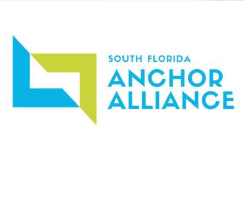JMRA Highlights Basis for Decline in Remittance Performance in Jamaica
KINGSTON, Jamaica – The Jamaica Money Remitters’ Association (JMRA) is pointing to a composition of factors, including security measures by its member organisations to reduce fraud and decreased access to banking services overseas as factors for the decline in remittances to Jamaica since the start of the year.
The records show that remittances dipped by 1.8 percent for the January to April period, despite improved economic conditions in key sender countries, when compared to the same period for 2012, according to data published by the Bank of Jamaica.
JMRA President, Leesa Kow said most of its members have established measures to tighten controls, given that inflows from lottery scams allegedly amount to some three percent of remittances to the country.
“Our members have had to restrict payout in some parishes in western Jamaica; and, in other instances, limit the amount persons in the United States of America, where most victims reside, and other parts of the world, can send to Jamaica, so as to reduce fraudulent activities,” she says.
Earlier this year, GraceKennedy Money Services which operates the franchise for Western Union, a leading player in the remittance market, also implemented mandatory requirements in February to up security at its locations. This action followed the closure of 14 Western Union locations and increased security and compliance measures in western parishes. In addition, in May GraceKennedy implemented a limit on money transfers that could be received at its outlets in Jamaica without its approval.
In addition, JN Money Services Limited, represented by Miss Kow, recently announced new mandatory measures governing the sending of money transfers to Jamaica from the US and remittance receipt in western Jamaica via its brand, JN Money Transfer.
LASCO Financial Services has also implemented tighter controls, particularly on its backend operations, noting that it has re-trained employees in compliance and fraud prevention procedures; as well as, updated its database to mitigate illicit activities.
“These controls have helped us to effectively reduce the inflow of illicit funds and diminish illicit activities using money transfer corridors,” Ms. Kow explained.
However, the JMRA President noted that, in addition to tighter controls on remittances, several money services businesses are facing challenges, such as access to banking services, particularly in the US and the United Kingdom, where banks have been closing the accounts of several MSBs, due to the high risk involved in maintaining such accounts. The decision follows US regulations for banks to tighten controls to prevent money laundering and the “unwitting” financing of terrorists.
Barclays Bank in the UK, which was one of the last British financial institutions that provided services to MSBs, recently closed the accounts of 250 Agents, which had a negative impact on remittances to East Africa.
“There is pressure from banking regulators for financial institutions to take greater steps to tighten their controls, to mitigate money laundering to comply with US anti-terror and money laundering laws; and, there is a belief that money transfer businesses do not have stringent controls; hence, the basis for banks to limit or withdraw services to money transfer businesses to ensure compliance,” Miss Kow said.
She noted that the regulations have particularly impacted internationally owned MSBs operating in the USA, including those which remit funds to the Caribbean and Latin America, forcing some MSBs to conduct their banking services through credit unions.
Remittances to Latin America and the Caribbean were predicted to increase by some three and a half percent according, to the International Monetary Fund (IMF), in its Regional Economic Outlook for the Western Hemisphere, although another World Bank publication in 2012 predicted an eight percent rise in remittance to Latin America and the Caribbean.
Jamaica receives in excess of US$2 billion in remittances from overseas, annually.


